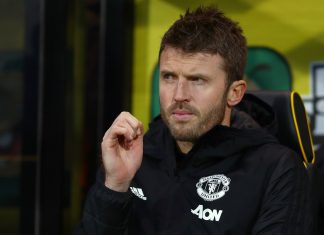It is not the first, and possibly neither is it the last, time that the Scot will resort to such tactics.
Such a move inevitably prompts an outcry, with the media angry at being snubbed by a manager whose post match tirades they hope will take up numerous column inches. It will have given Ferguson significant comfort that the post match reports of the game devoted just a line to United’s reaction, to say that they had refused to talk to the media, thus depriving them of potentially invaluable quotes.
Yet the league have been fining United every week for their refusal to speak to the BBC over Ferguson’s long running feud with the corporation, which goes back to a documentary they showed which implicated Ferguson’s son, Jason, in illegal transfer dealings.
Ferguson is right in many of his points. The media are guilty of exaggeration, twisting team’s words, and blowing small incidents out of all proportion. They are a transformative force in the modern world, not just in sport, and often they can use their power to ill effect, and it is understandable that Sir Alex would be angered when they use Manchester United to achieve these ends.
And as Harry Redknapp pointed out, Ferguson is well within his rights to decide who he speaks to and who he does not, and is correct to identify himself as being in a no win situation – either he speaks to the media and is damned, or he does not speak, and is still damned. Better not to put the effort in, it would seem. Ferguson’s behaviour should be a reminder to the media that their habits and tendency to blow issues out of all proportion should be tempered by common sense, and that tabloids in particular should keep away from the sensationalism they indulge in. Journalists do not have a divine right to speak to Ferguson, or anyone else. Many have a habit of demanding exacting standards of people in football whilst practising the opposite themselves.
The cause of Ferguson’s dispute with the BBC is evidence of this point. The BBC are within their rights to investigate whomever they want, Ferguson and his son included. But to do so and to not provide clear evidence of a crime committed is plainly wrong. The BBC are not alone in allowing personal and political agendas to get in the way of balanced, or even fair, journalism. Outside of the world of sport, the BBC have a dark history of imbalanced journalism and attempts to cover it up (google the Balen report).
But there are two drawbacks which Ferguson should be wary of. The first is that by refusing to talk to the media, United forced their critics to focus on the team’s display rather than any complaints they may have had with the officiating by Phil Dowd, who had an awful game, and Ferguson would have been right to have pointed that out.
Therefore the barrage of criticism manifested itself in the form of several reports of United’s demise and need to rebuild. Even the usually imperious Ryan Giggs and Paul Scholes were not protected from the reviews. Ferguson could have used the post match briefing to deflect attention.
And secondly, United do need the media. It is not just United, but every team in the league. The media hype that surrounds the Premiership may be over the top, but it plays a crucial role in enabling the Premier League to receive the huge sums of money they are paid by TV companies for rights to show the league’s games. Ferguson is right to bemoan the media’s tendency to exaggerate and twist his words, but ultimately, the media is the enemy better to keep close than to push away.







